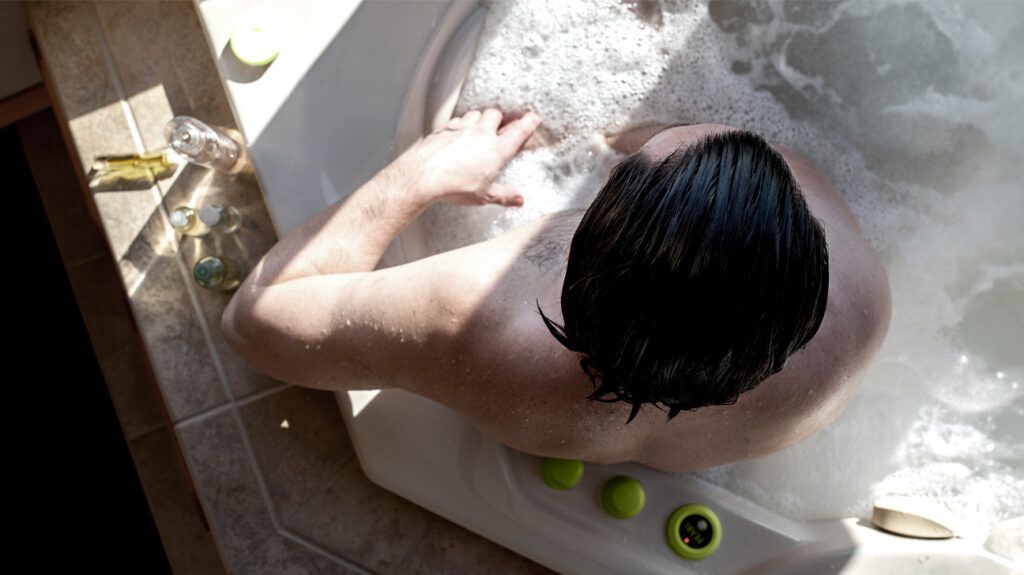Some claim that adding apple cider vinegar (ACV) to a bath may promote general skin health and remedy several conditions. However, these claims do not have scientific support.
Apple cider vinegar (ACV) is made by allowing apples or apple juice to ferment. It may have some mild health benefits due to the type of acid in the vinegar and other compounds. ACV has mild antibacterial properties, contains a small amount of antioxidants and probiotics.
Due to these properties, some people claim that soaking in ACV may improve bacterial balance on the skin, improve wound healing, and help treat skin conditions such as acne and eczema. However, there is no robust scientific backing for any of these claims.

Proponents of ACV as a topical remedy claim that its acidic nature can aid skin health.
The reason that these factors could help is that the barrier on the outer layer of skin, or the acid mantle, is naturally acidic. It protects the skin from viruses, infections, and other potential hazards. Any breaks in this barrier or factors that cause the skin’s pH levels to change may lead to skin problems.
As a result, people claim that adding ACV to a bath makes the water more acidic, thus promoting skin health by restoring the skin’s pH balance and protecting this outermost layer. Proponents claim ACV soaks may help with skin conditions, including acne, eczema, and wound healing.
However, a
Similarly, a
Wound treatment
There is little research into the benefits of ACV baths for wound healing. However, small studies suggest that topical ACV applications may have a small positive effect on wound healing in some instances.
For example, one 2023 study found that using ACV in wound dressings had a positive impact on healing rates of diabetic foot ulcers.
A small 2024 animal study also found that a solution of apple cider vinegar and p-coumaric acid did indeed help promote wound healing by reducing bacterial activity in open wounds.
However, neither of these studies directly supports the use of ACV baths.
Fungal infections
Some people support the topical use of ACV for its antifungal properties. While it does indeed have antifungal properties, studies have not found applicable uses for ACV in skincare.
For example, a
Eczema
Some people with atopic dermatitis, or eczema, may wish to try taking ACV baths in an attempt to reduce eczema symptoms. The reasoning behind these claims is that eczema alters the natural PH balance of the skin, and acidic soaks can help restore this to its natural levels, and in turn, reduce symptoms.
However, as mentioned previously, a
Although there is limited evidence as to the beneficial effects of ACV, some people may wish to try taking an ACV bath. However, it is important to patch-test a small area of skin with a diluted ACV solution before doing an ACV bath for the first time. A person should wait a few days after performing a patch test to thoroughly check for any reaction.
A person can add 1–2 cups of ACV to a warm bath and soak for 20–30 minutes. Doing this regularly may be enough to promote overall skin health.
After bathing, rinse the skin under cool water to close the pores and remove excess vinegar.
People with localized conditions, such as a fungal infection in the foot, may want to isolate the area and only apply diluted ACV or soak the affected area.
Although people may claim it to have benefits, there is little scientific backing to soaking the skin in an ACV solution. People should speak with a medical professional about any skin symptoms they wish to address before trying alternative remedies.


